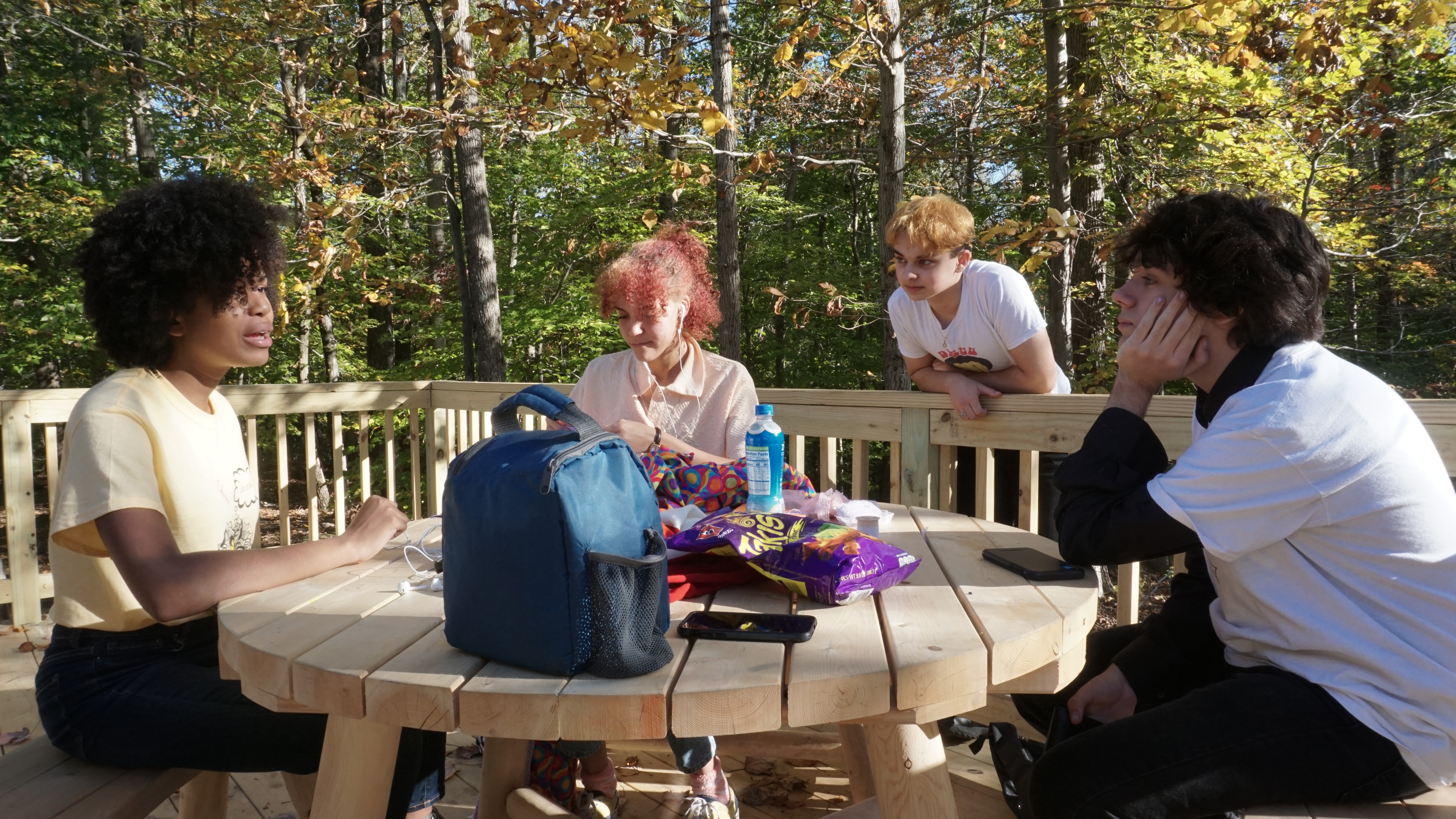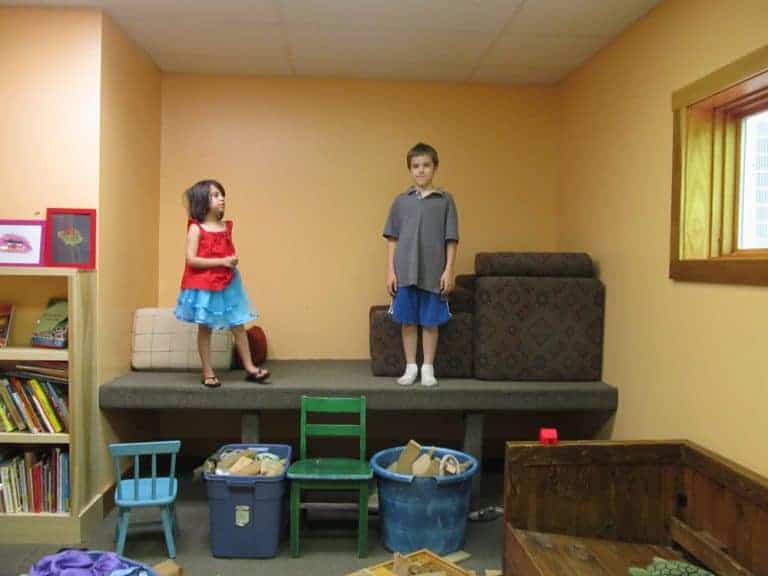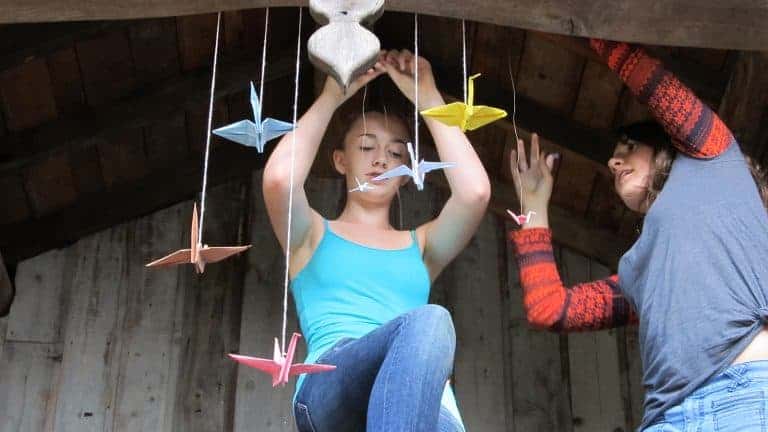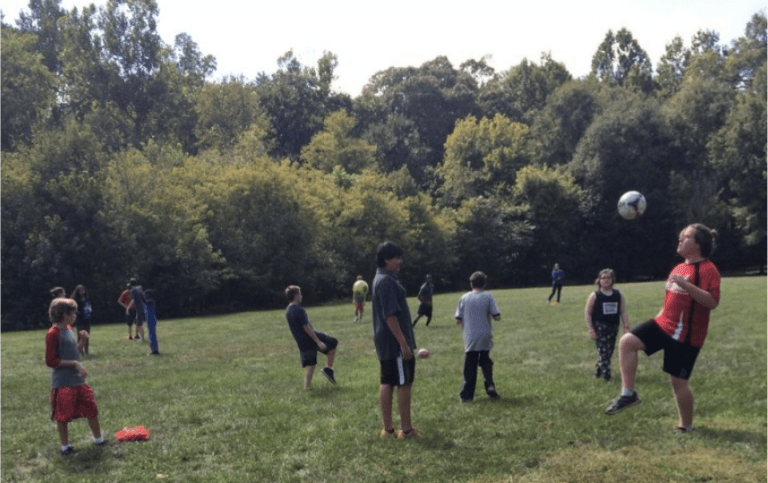Field Notes: All This Hanging Out
“Man is by nature a social animal…society is something that precedes the individual.”
Aristotle
Have you ever noticed the painting of the Old Building that hangs in the Circle Room? The artist, a founder and early staff member, painted the building before construction began, and her rendition includes a porch off the Art Room. This August, twenty-two years after the busy summer when we built the school by hand, we have finally added a new porch to our first building! This new area has already become a favorite place for one of the most essential Fairhaven activities, “hanging out.” Like many other things that happen here, an examination of hanging out might reveal its value.
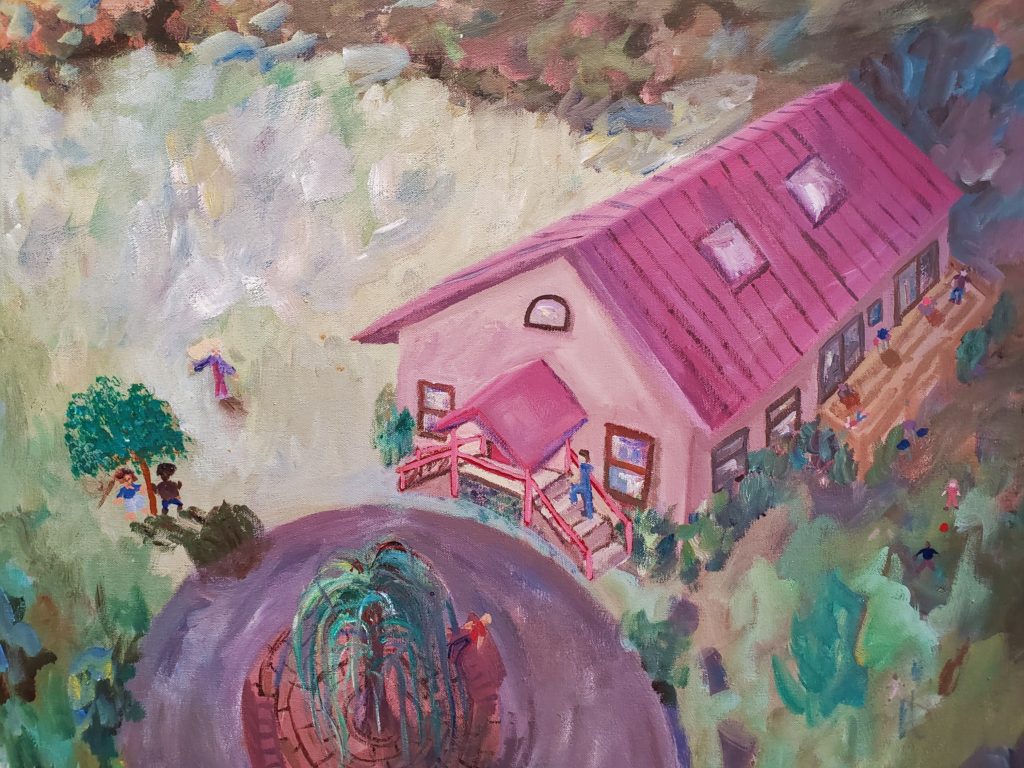
We often describe Fairhaven School as “a very social place,” and on campus, students are almost always doing things together. They are talking, playing, joking, and debating; they do so many things together, in fact, one could just list verbs to further explore hanging out. Taking full advantage of their freedom of movement, they congregate in halls and in rooms, in the parking lot and in the forest, in front of screens and in their massive teepee of gathered branches. While we always see a few students who choose solitude, even they seem to sooner or later get swept up in the society that is Fairhaven.
Note that word, Aristotle’s “society.” On a macro level, the design of this school is to create an independent, interesting world with coequal freedom and responsibility, a society, if you will, with the explicit recognition that being social here is the best preparation for success in the larger society. Doing things together, then—social activities—may just represent the most important activity here.
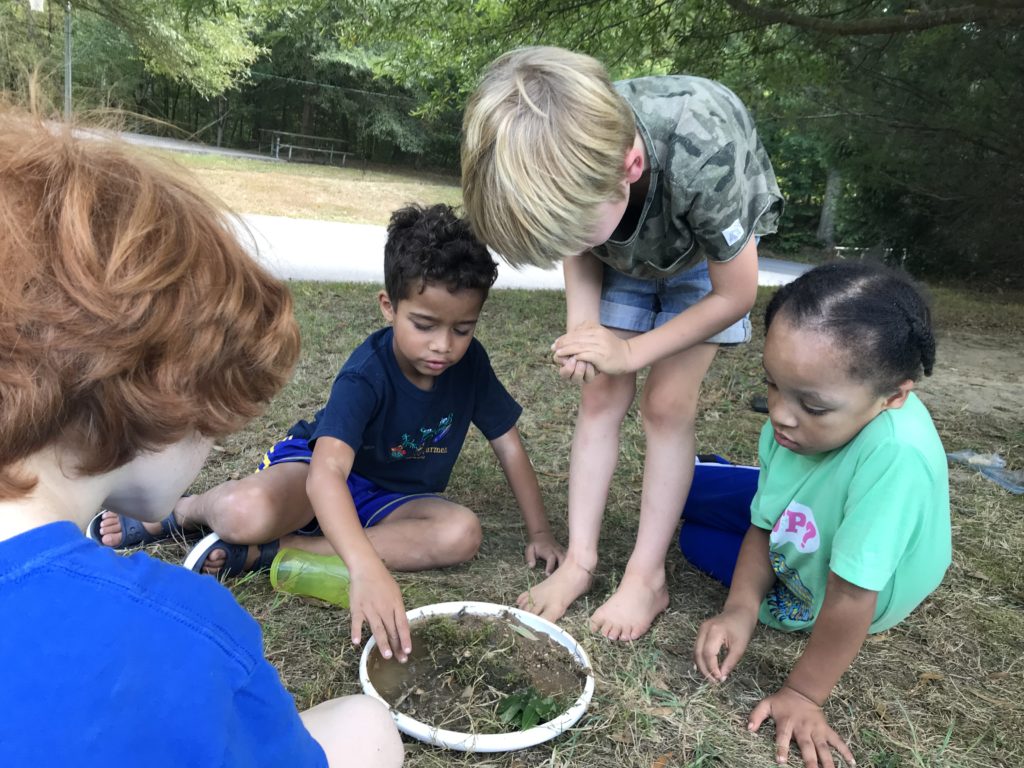
Almost always, when they hang out, Fairhaven students are talking. As in any successful society, these talks range from hilarious to profound, from the latest gag of fake-brushing someone’s shoes (“swiping” someone in student slang) to an hour-long exploration of the multiverse. The talk often involves local politics: Why impose new limits on leaving campus? For how long should we (our School Meeting, mostly comprised of students) suspend someone who has lost the balance of freedom and responsibility to the point of endangering the school’s social fabric? The longer students attend, the better they become with language, with the acquisition and exchange of both knowledge and connection. What more could a school want?
A careful observer may also notice that sometimes students will hang out in pairs, engaging in what often become profound, generally platonic relationships. This subset of hanging out creates opportunity for both deep play and deep conversation, sometimes even deep silence. Just this week, when I asked two older boys what they were up to, they replied that they were “walking around and talking,” and their peripatetic dialogue seemed to continue all day. Students learn to relate to individuals with respect and with what seems to be neither the need nor the desire to dominate the other. Breaching this social contract is unacceptable, represented by the first rule in the school’s Lawbook, known as “Right to Exist Peaceably” after language we borrowed from Sudbury Valley School the same year we hung the painting.
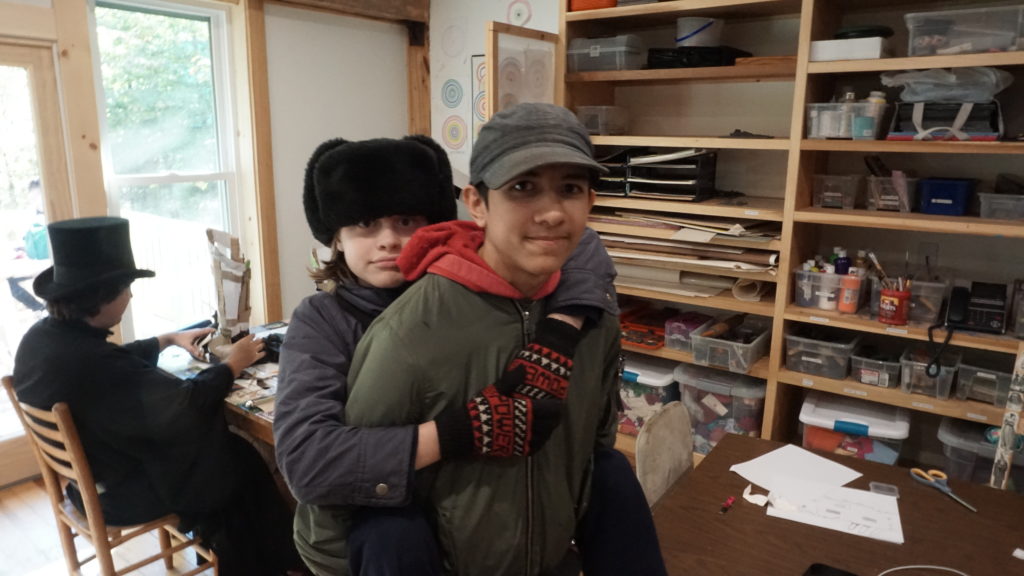
Of course, a natural consequence of this fluid social context can be conflict, and when conflicts do arise, as they do in any society, we Fairhaveners have established public, egalitarian systems to resolve them. We all have the right and the responsibility to participate in the Judicial Committee and in the School Meeting to maintain the school’s paradoxically delicate and strong culture. In the end, one could argue that we make our democratic decisions so that we can maintain an atmosphere with the greatest possibility of more hanging out!
One last element of successful hanging out here is choice. A Fairhaven experience must involve agency, defined as “the capacity of individuals to act independently and to make their own free choices.” Therefore, all these activities I’m loosely calling “hanging out,” all this talking and playing, has been freely chosen by the individuals. Conversely, can you imagine anything worse than forced conversation, or play, or friendships?
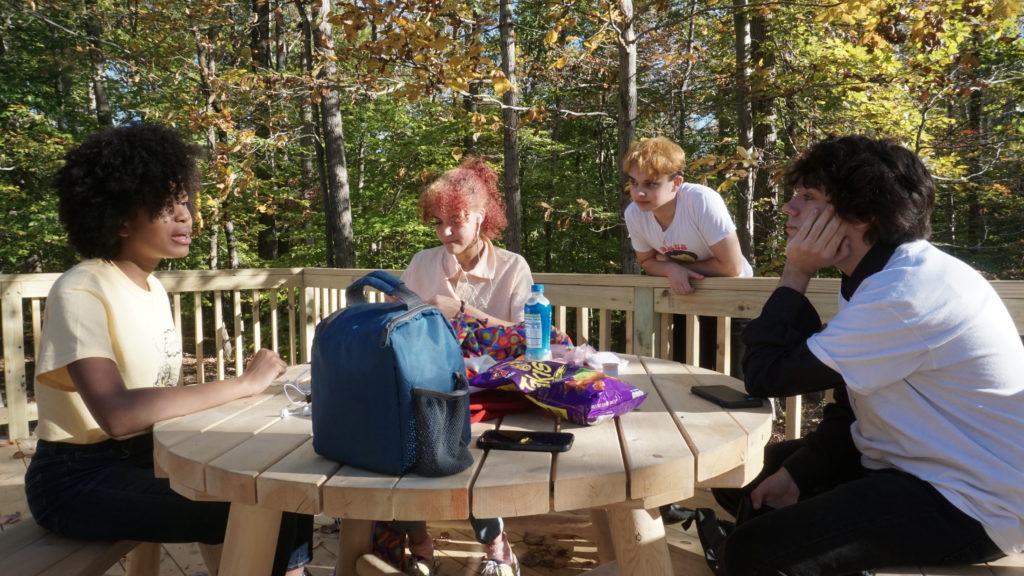
Aristotle asserts that “society is something that precedes the individual,” an idea with both the ring of truth and the fault of oversimplification. Here at Fairhaven School, we explore in real time the classic tension between the rights and freedoms of the individual and the needs of the society. Today, at the end of October, the new porch beckons beneath scarlet and yellow leaves. Earlier, we had debated whether we should install steps to the ground to facilitate the flow of traffic or not install steps to better establish a location for, yes, hanging out. Hanging out won the debate, and the porch culture grows, already a destination that’s delightful for art, conversation, and lunch under the trees. As a postscript, either in the spirit of compromise or rebellion, on the very first day of the school year, intrepid students surprised no one by climbing over the railing to access the porch, wonderful exemplars of Fairhaven School’s evolving society, undeterred, and always, always moving forward.
Mark McCaig
October, 2019
